The discipline of microbiology at Trinity College Dublin celebrates its centenary in 2019 and this meeting will mark the occasion by focusing attention on the significant contributions that have been made by the College to microbial sciences. The meeting will be a celebration of the strength of microbiology today and the unifying scientific theme of the meeting will be Microbes in Medicine.
The meeting will bring together scientists and medical practitioners with an interest in pathogenic mechanisms and in the use of microbes and microbial products to treat and prevent diseases. Highlights of the meeting will include sessions on recent advances in the application of genomics to study antibiotic resistance and virulence in pathogens, persister cells, gene regulation in pathogens and microbial cells surfaces. The importance of the human microbiota and how it differs between healthy and diseased states will also be explored.
This Focused Meeting will take place from 24-25 October 2019 at Trinity College Dublin, Ireland.
Organising committee:
Key topics:
To get the latest news and updates, follow us on Twitter @MicrobioSoc using the hashtag #MicroMed19, and like our Facebook page.
Image: Dennis Kunkel Microscopy/Science Photo Library.
Registration for this event has now closed.
|
Full rate (Available until 21 October) |
|
|
|
£100 |
|
|
£70 |
|
|
£140 |
|
|
£110 |
|
|
£240 |
|
|
£210 |
Upon registration you should receive an automated confirmation email. Please contact [email protected] if after 24 hours this has not been received or you encounter any problems registering online.
If you need a letter of invitation for a visa application, we will be happy to supply this after we have received full payment.
The Department of Justice, Equality and Law Reform has primary responsibility for Ireland’s immigration and visa policy. For more information on visa requirements for Ireland please see their website: www.dfa.ie
Please note that all conference delegates are responsible for their own travel and visa arrangements; the Microbiology Society will not take any responsibility for travel or visa problems.
All registration fees must be paid in full BEFORE arrival at the meeting. Any outstanding registration fees must be paid before admittance will be granted to the meeting.
Refunds will not be provided.
Substitutions of attendees can be made at any time by contacting [email protected].
The invited speakers who will present their work and research at this meeting are:
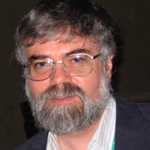
The 2019 Microbes in Medicine: A Century of Microbiology at Trinity College Dublin focused meeting, marks the centenary of the establishment of the Professorship of Bacteriology and Preventive Medicine at Trinity College Dublin. Charles Dorman is only the fifth person to hold this Professorship since its inauguration in 1919 and it is now known as the Chair of Microbiology.
Adrian Stokes, the first Chair of Microbiology at Trinity College Dublin, trained in bacteriology at St Mary's Hospital, London, now part of Imperial College. Charles was born at St Mary's Hospital, London, just meters from the laboratory of Alexander Fleming. As a child he lived opposite the Fleming laboratory on Praed Street for several years. When Fleming observed the killing of Staphylococcus aureus bacteria by the Penicillium mould in 1928, he was repeating work on Staphylococcal variants by Joseph Bigger, the second Chair of Microbiology at Trinity College Dublin (Greenwood, D. 2008. Antimicrobial Drugs, OUP).
Charles Dorman graduated from University College Dublin with a BSc in Microbiology in 1981. He completed his PhD at Trinity College Dublin in 1985 and an ScD in 2005. In 1988, following a postdoctoral stint at the Biochemistry Department at Dundee University, he was awarded a University Research Fellowship by the Royal Society and subsequently appointed by Dundee University to a lectureship in biochemistry in 1992. In 1994 Trinity College Dublin recruited him to be Chair of Microbiology and in the same year he was awarded the Fleming Prize by the Microbiology Society.
Charles’ research aims to understand the mechanisms by which bacteria exploit variable DNA topology, nucleoid-associated proteins and conventional transcription factors, to coordinate gene expression within regulatory networks and hierarchies.
His interest in the stochastic generation of physiological diversity in genetically homogeneous populations has parallels with the work of Joseph Bigger on the 'persister' phenomenon in antibiotic-treated bacterial cultures. Charles’ work with bacteria of medical significance echoes some of the research themes explored by Adrian Stokes (first Chair of Microbiology), Stanley Stewart (third Chair of Microbiology) and Sir John Arbuthnott (fourth Chair holder). Charles Dorman's latest book, Structure and Function of the Bacterial Genome is due to be published by Wiley in 2019.
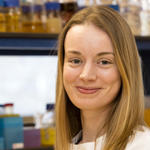
Dr Joan Geoghegan was appointed as Assistant Professor in Microbiology (Molecular Bacteriology) at Trinity College Dublin in 2012. During her PhD and postdoctoral training at Trinity, and as visiting researcher at Texas A&M University, she developed expertise in using biochemical and biophysical approaches to dissect the molecular basis of the interactions between staphylococcal proteins and host molecules. Her current research focuses on identifying and characterising factors that contribute to the success of methicillin resistant S. aureus (MRSA) within diverse niches in the human body. Her group studies proteins in clinical MRSA strains that promote attachment to human cells and tissues, biofilm formation and bacterial survival in neutrophils and macrophages. The main aim of this research is ultimately to identify new targets for the treatment and prevention of MRSA infection.
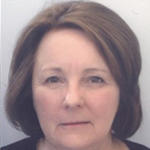
Ursula Bond received a PhD from Washington University, St. Louis, and was an Anna Fuller post-doctoral fellow at Yale University before returning to Dublin to join the Microbiology Department at Trinity College Dublin. Her research group studies the genetic composition and evolution of Saccharomyces pastorianus, a hybrid yeast that arose as a result of hybridisation events between S. cerevisiae and S. eubayanus strains. Additionally, the group uses adaptive evolution, synthetic biology and metabolic engineering approaches to generate yeasts with improved cellular characteristics and for producing new biological products.
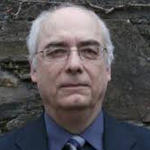
Graduated with a BSc (Hons) from University College Dublin and a PhD from Trinity College Dublin. Postdoctoral fellow at the University of California, San Diego investigating development in Dictyostelium discoideum and at Trinity College Dublin researching plasmid biology and stress responses in Bacillus subtilis. Appointed lecturer in genetics (1987) and Professor of Microbial Molecular Genetics (2014). Elected to Fellowship of Trinity College Dublin (1994) and to membership of the Royal Irish Academy (2013).
A member of the original consortium formed to sequence the whole genome of Bacillus subtilis and participant in the ensuing projects that investigated genes of unknown function, genome minimalisation and regulatory networks. Additional research focused on (i) two-component signal transduction systems in cell wall metabolism (WalRK, PhoPR) and in nutrient, secretion and phosphate-limitation stress responses (Spo0A, CssRS, PhoPR respectively) and (ii) class I lysyl tRNA synthetases of Borrelia burgdorferii and Bacillus cereus.

Gordon Dougan, who is a Professor at the Department of Medicine at Cambridge University, is an internationally recognised expert in vaccinology and microbial pathogenesis. He was Head of Pathogens at the Wellcome Trust Sanger Institute (WTSI) for over a decade and worked in industry developing novel vaccines at an internationally renowned multi-national company. He currently sits on the board of The Hilleman laboratories, a joint venture between Wellcome and Merck and is a founder of VHSquared and Microbiotica, both spin outs. He is a member of EMBO and a Fellow of the Royal Society and is currently working at the Wellcome Trust, advising them on vaccine strategy and innovations.

Stephen Gordon obtained his BSc from NUI Galway, Ireland (1990), PhD from the University of Leicester, UK (1995) and pursued postdoctoral research at the Institute Pasteur, Paris as a Wellcome Trust Fellow. He was a team leader in the TB Research Group, Veterinary Laboratories Agency, Weybridge (UK) from 1999–2007, and took up his current position at University College Dublin in 2008. His research focuses on understanding the molecular basis for virulence in mycobacterial pathogens and is funded by Science Foundation Ireland, the Department of Agriculture Food and Marine, Wellcome Trust, BBSRC and EU H2020.
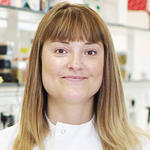
Lindsay obtained a BSc in Microbiology from the University of Glasgow, and a PhD in Microbiology and Immunology from the University of Cambridge (Wellcome Trust Sanger Institute). She was then a postdoctoral fellow at University College Cork, Ireland (APC Microbiome Institute).
Lindsay returned to the UK to take up her first independent post as a Lecturer at the University of East Anglia before moving to the Quadram Institute at the end of 2015 where she is now the Microbiome Group Leader working within the Gut Microbes and Health Strategic Programme.
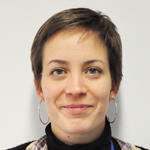
Sophie Helaine has a PhD from Universite Paris 5, Paris, France, in molecular microbiology. Sophie did her postdoctoral work in the Centre for Molecular Bacteriology of Infection at Imperial College London, where she developed innovative tools to investigate the interaction of Salmonella and host macrophages at the single cell level. Awarded a Junior Research Fellowship by Imperial College London, Sophie started her own research group to study the formation and biology of Salmonella persisters during infection of the host. She was granted a 5y MRC Career Development Award from January 2015 to investigate the role of Toxin-antitoxin modules during Salmonella infection, and an ERC starting grant from February 2018 to investigate how persisters wake up. Sophie is a Lister Research Prize fellow since 2017 and an honorary senior lecturer at Imperial College London. She recently took up a new position in Harvard Medical School where she runs her research group.

Jay Hinton is Professor of Microbial Pathogenesis at the University of Liverpool, UK. He did his first degree in Microbiology, when he was inspired to think genetically by Professor George Salmond. After his PhD, he worked on gene regulation in Salmonella at the University of Oxford, and then moved to Norwich, UK, as Head of Molecular Microbiology at the Institute of Food Research, where he pioneered a transcriptomic approach that revealed a "snapshot" of Salmonella gene expression during the process of infection of mammalian cells in 2003, and soon afterwards co-discovered the H-NS-mediated mechanism of silencing gene expression in bacteria. In 2009, Jay moved to the Moyne Institute at Trinity College Dublin for 4 years, where his team used RNA-seq-based approaches to understand the transcriptome of S. Typhimurium and identify 280 non-coding sRNAs. After moving to Liverpool, he is now using a combination of genomics and functional transcriptomics to bring new insights to the lethal epidemic of bloodstream infections caused by Salmonella in sub-Saharan Africa. In 2018, his team determined the role of a single noncoding nucleotide in the over-expression of a key virulence factor in African Salmonella. He was elected to membership of the European Academy of Microbiology in 2018.

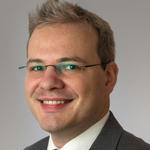
Carsten Kröger is an Assistant Professor in Microbiology at Trinity College Dublin. He studied Biology at the Heinrich-Heine University in Düsseldorf and the Helmholtz Research Centre Jülich. He obtained his PhD from Technische Universität München and then moved as a postdoc to Trinity College Dublin and later to the University of Liverpool to work in Jay Hinton’s laboratory. After a short stint at Andrew Cameron’s lab at the University of Regina, Canada, he moved back to Ireland in October 2015, where he now leads a research group that studies gene regulation, RNA biology and antibiotic resistance in Salmonella enterica and Acinetobacter baumannii and teaches microbiology at Trinity College Dublin.

Jodi Lindsay is Professor of Microbial Pathogenesis at St George’s, University of London, and specializes in bacterial evolution, horizontal gene transfer, antimicrobial resistance and the population structure of Staphylococcus aureus and MRSA in humans and animals. She began her career with a PhD from the University of Western Australia, followed by post-docs at New York University Medical Center and the University of Sheffield, and joined St George’s in 1998. She collaborates widely with bioinformaticians, chemists, mathematical modellers, clinical microbiologists and infectious disease physicians, veterinarians and public health experts. She edited the book Staphylococcus: Molecular Genetics in 2008, Co-Chaired the GRC on Staphylococcal Diseases in 2011, and is currently Chair of the ESCMID study group on Staphylococci (ESGS) and Chair of the Publishing Committee and Council Member of the Microbiology Society.
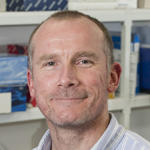
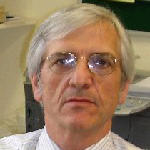
Tom Rogers is Professor and Head of Discipline of Clinical Microbiology in Trinity College Dublin (2004-) and Consultant Microbiologist at St James’s Hospital Dublin where he is also Clinical Director of the Irish Mycobacteria Reference Laboratory.
He has a longstanding interest in infections in immunocompromised patients and in particular in invasive mycoses complicating leukaemia treatment. He has investigated the leading mould pathogen Aspergillus fumigatus with respect to pathogenesis, non-culture diagnostics, and emerging antifungal drug resistance linked to environmental use of triazole antifungals. He is past President of the Irish Fungal Society and of the British Society for Medical Mycology. His previous appointment was at Hammersmith Hospital campus of Imperial College London (1993-2004). He is a medical graduate of RCSI

Liz is a bacteriologist who researches and teaches at Nottingham University. Liz is a Microbiology Society Member, Fellow of the American Academy of Microbiology and Fellow of the Royal Society.
Liz’s research group works on the predatory bacterium Bdellovibrio bacteriovorus with funding from Wellcome Trust, DARPA, BBSRC and Leverhulme Trust. This bacterium naturally kills Gram-negative bacteria and is coming to the fore in the fight against antibiotic resistance in Gram-negative pathogens.
Her research interests include the application of Bdellovibrio as antibacterials to kill antibiotic-resistant pathogens. Collaborating with Dr Andrew Lovering (University of Birmingham, UK) and colleagues including Professor Waldemar Vollmer (Newcastle University, UK) and Dr Erkin Kuru (formerly Indiana University, USA, now Harvard University, USA), she works on the fundamental understanding of how predatory enzymes kill Gram-negative bacteria. Bdellovibrio have been researched as a solution to Gram-negative bacterial infections, including infections in zebrafish (working with Dr Serge Mostowy, Imperial College London, UK) poultry (working with Dr Rob Atterbury and Laura Hobley, University of Nottingham, UK) and mushrooms. Research relevant to human infections is at a pre-clinical state, pioneered by our lab and others.
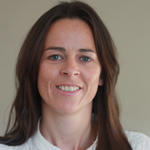
Sinéad obtained a BSc Microbiology from University College Cork and a PhD in Molecular Microbiology at the Alimentary Pharmabiotic Centre (APC Microbiome Ireland), University College Cork. During this time she investigated the interaction of the food borne pathogen Listeria monocytogenes with the gastrointestinal epithelium and the therapeutic potential of probiotics to treat intestinal infection. She subsequently undertook postdoctorate positions with GlaxoSmithKline-APC Microbiome Ireland, investigating novel therapeutics for the treatment of inflammatory bowel disease (IBD), and with Professor Luke O’Neill at the School of Biochemistry and Immunology, Trinity College Dublin, where she investigated the role of innate signalling pathways in intestinal health and inflammation. Sinéad was awarded a Science Foundation Ireland Starting Investigator Research Grant to support her research. In 2015, she was appointed Assistant Professor in Microbiology, in the Department of Microbiology, Trinity College Dublin. She is also a member of faculty at APC Microbiome Ireland. Sinéad leads the Microbiome & Mucosal Immunity group, which researches the molecular mechanisms underpinning the crosstalk between the intestinal immune system and the gut microbiome, with a focus on microbiome-associated disorders like IBD. The influence of the microbiome on health and disease, and the potential to harness it as a therapeutic strategy, is a priority research focus.
 Tim Foster graduated from Trinity College Dublin in 1969. After studying for a PhD in Microbiology in Bristol in 1972 he was appointed to a Junior Lecturership in Bacteriology in TCD. He was promoted to full Professor in 1997 and retired in 2014. He studied Staphylococcus aureus for 30 years focussing on using genetic and molecular techniques to analyse virulence. Learning how to by-pass restriction barriers has allowed genetic manipulation of most clinical isolates. By studying proteins from the bacterial cell surface he has tried to understand the mechanisms that allow the bacterium to colonize the human host as well as to cause invasive infections.
Tim Foster graduated from Trinity College Dublin in 1969. After studying for a PhD in Microbiology in Bristol in 1972 he was appointed to a Junior Lecturership in Bacteriology in TCD. He was promoted to full Professor in 1997 and retired in 2014. He studied Staphylococcus aureus for 30 years focussing on using genetic and molecular techniques to analyse virulence. Learning how to by-pass restriction barriers has allowed genetic manipulation of most clinical isolates. By studying proteins from the bacterial cell surface he has tried to understand the mechanisms that allow the bacterium to colonize the human host as well as to cause invasive infections.Abstract submission has now closed.
Presenters who have had their abstracts accepted can find some guidance on preparing for their presentations below.
Please prepare your presentation in widescreen (16:9) format for PowerPoint.
A Windows PC will be available. If you wish to present from a Mac, please bring your own device and cable to connect to the projector.
All offered paper presentations are 15 minutes. Please prepare a 12 minute presentation and allow 3 minutes for questions. Please check the online programme to find the time that your presentation will be taking place.
All offered paper abstracts will be printed in the meeting programme book.
We have produced a guide on how to give an oral presentation, which can be downloaded below:
Those who are presenting a poster must ensure the work is presented as below. Incorrectly formatted posters might not be displayed.
We have produced a guide on how to give a poster presentation, which can be downloaded below:
The poster abstract book can be downloaded below:
All poster presenters will be considered for the Journal of Medical Microbiology 'Most Promising Science Poster Prize’. This prize will be judged by members of the microbiology Society Irish Division, with the winner receiving a small cash prize and certificate. For more information on the journals, visit microbiologyresearch.org.
Each year, the Young Microbiologist of the Year Competition recognises and rewards excellence in science communication by a Microbiology Society member who is a postgraduate student or postdoctoral researcher, having gained their PhD in the last two years.
During the meeting, judges will be visiting posters and listening to offered orals by delegates who have entered the competition via the abstract submission system. Finalists will be notified in early summer if they have been selected and will be invited to give a 10-minute oral presentation (plus 5 minutes for questions) at the final at the Society’s Annual General Meeting in September 2020.
This meeting will take place in the Joly Theatre, Hamilton building at Trinity College Dublin.
16 Westland Row
Dublin 2
Ireland
Exclusive rates have been secured for delegates of this meeting at the Radisson Blu Royal Hotel, Dublin, which is short walk from Trinity College Dublin. Book your room for the discounted rate of €175 per night using the link below (available until Friday 4 October).
Book accommodation
Applications for support to attend the Microbes in Medicine 2019 Focused Meeting are now open and will close on 22 September 2019.
Society Conference Grants will be available to support eligible members wishing to present at this Focused Meeting. Funding is also available for members requiring support for caring costs associated with conference attendance. You can apply for a grant before receiving notification about the outcome of your abstract submission. A conditional grant offer can be made without evidence of abstract acceptance if unavailable at the time of application, however evidence must be provided to claim any grant offered.
The ECM Forum co-chairing Scheme provides ECM Forum members with the opportunity to be involved in the chairing of scientific sessions at the meeting. The Co-Chairs will not receive any monetary value in co-chairing and will not take the place of a session Chair but will receive a fantastic professional development opportunity to learn about being a session chair from more experienced colleagues.
ECM Forum members who are submitting an abstract to the meeting are asked to express interest in the Co-Chairing Scheme via the abstract submission system, and are invited to provide a statement outlining the following information:
All applications will be reviewed by the organising committee and successful Co-Chairs will be introduced to the relevant session Chair.
Co-Chairs will receive a letter of thanks from the ECM Forum Executive Committee confirming that they participated in the Co-Chairing Scheme and will be recognised in the conference programme.
For questions about the ECM Forum Co-chairing Scheme, please email [email protected].
Each year, the Young Microbiologist of the Year Competition recognises and rewards excellence in science communication by a Microbiology Society member who is a postgraduate student or postdoctoral researcher, having gained their PhD in the last two years.
To enter this competition, applicants must tick the appropriate box during online abstract submission. Finalists will be invited to give a 10-minute oral presentation (plus 5 minutes for questions) at the final at the Society’s Annual General Meeting.
Exhibition and sponsorship opportunities are available for this meeting. For more information, please contact [email protected] or download and return the booking form to ensure your presence at the event.
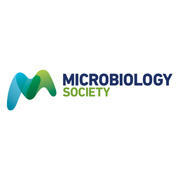
|

|

|